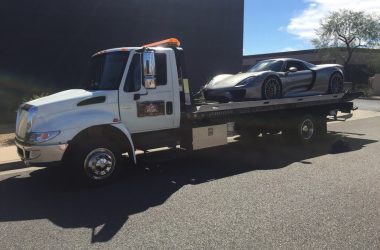Whether you are planning a road trip or RV adventure, preparation is key to a successful trip. A car breakdown on the side of the road is the last thing you need. Before hitting the open road, it’s important to check all of your vehicle’s fluids. Oil, transmission fluid, brake fluid, power steering fluid, and coolant are included in this category. If any levels appear low or dirty, top them off or have them changed before your trip. Check them thoroughly for signs of wear and tear such as bald spots or cracks in the sidewall. Make sure they’re properly inflated according to the manufacturer’s guidelines. Brake failure can be catastrophic on long trips where you’ll be driving in unfamiliar terrain with varying weather conditions. Before setting out, have your brakes inspected by a professional mechanic who can identify any potential issues such as worn pads or rotors that need replacing.
Visibility is crucial when driving along highways and backroads alike during rainstorms or other inclement weather conditions you may encounter while traveling by car or The Road Tripster. Be sure to replace old wiper blades with new ones to ensure clear visibility while driving in adverse conditions. No matter how well-prepared you are for a road trip always potential for emergencies along the way flat tires to dead batteries in remote areas where assistance may not come quickly enough without extra tools at hand like jumper cables, tire repair kits, or spare parts like belts and hoses just in case something goes wrong unexpectedly. To avoid any surprises on the road, take your vehicle to a trusted mechanic before hitting the road. Have them perform a thorough inspection and any necessary maintenance such as oil changes or tune-ups.
A clean car not only looks better but can also improve fuel efficiency by reducing drag from dirt and debris on its exterior surfaces like windshields, mirrors, and lights will help you save money while traveling since you won’t need to stop at the gas stations as often due to better fuel economy because of reduced air resistance caused by dirty vehicles. Before heading out on your trip, plan your route using GPS or other navigation tools like Google Maps or Waze to avoid traffic congestion during peak travel times or construction zones where delays are common along the way. Long hours behind the wheel can be tiring for any driver regardless of their experience level with road trips in particular since they involve extended periods without much rest between places, so make sure you schedule regular breaks every few hours throughout the day while driving RVs or cars alike to recharge yourself mentally and physically. Be sure to plan for meals, snacks, and toilet stops accordingly, and if possible, alternate driving with someone else to ease the burden. Additionally, try to stick to highways and major roads when necessary, and drive during the day when possible, as it reduces fatigue and the risk of being involved in an accident.








